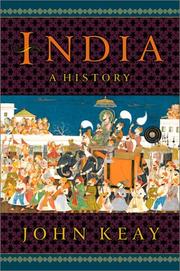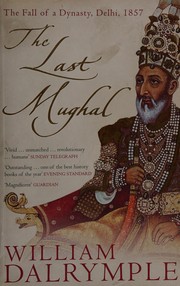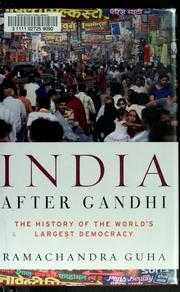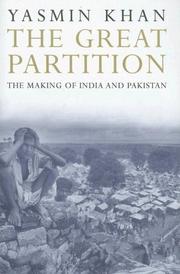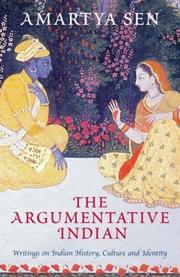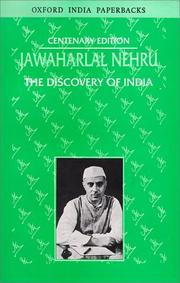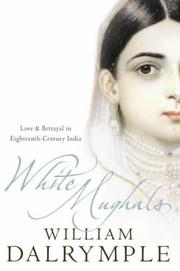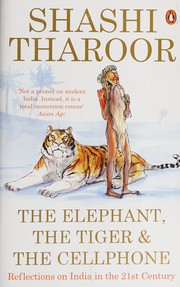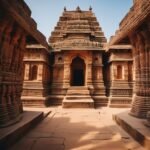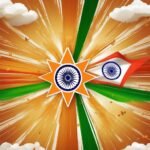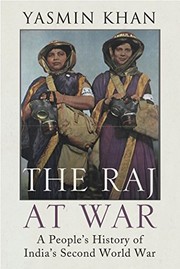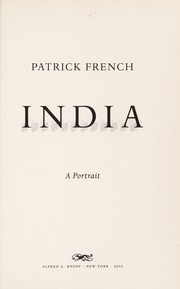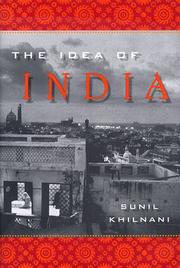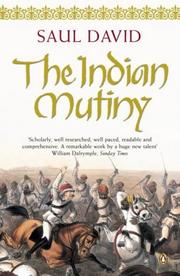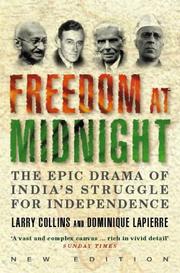Are you fascinated by the rich and diverse history of India? Look no further! We’ve curated a list of the 20 best books on Indian history that will take you on a captivating journey through the centuries. From the ancient civilizations of the Indus Valley to the Mughal Empire and the struggle for independence, these books offer deep insights into the culture, traditions, and events that have shaped India’s past. Whether you’re a history buff or simply eager to learn more about this fascinating country, these Indian history books are sure to enlighten and enthrall you.
Contents
- 1 20 Best Indian History Books
- 2 India: A History
- 3 The Wonder That Was India
- 4 The Last Mughal: The Fall of a Dynasty, Delhi 1857
- 5 India After Gandhi: The History of the World’s Largest Democracy
- 6 The Great Partition: The Making of India and Pakistan
- 7 The Argumentative Indian: Writings on Indian History, Culture and Identity
- 8 The Discovery of India
- 9 The White Mughals: Love and Betrayal in Eighteenth-Century India
- 10 India: A Sacred Geography
- 11 The Elephant, the Tiger, and the Cell Phone: Reflections on India in the 21st Century
- 12 The Raj at War: A People’s History of India’s Second World War
- 13 India: A Portrait
- 14 The Hindus: An Alternative History
- 15 The Idea of India
- 16 The Making of Modern India: From Marx to Gandhi
- 17 India: A Short History
- 18 The Indian Mutiny: 1857
- 19 The Wonder That Was India: A Survey of the History and Culture of the Indian Sub-Continent before the Coming of the Muslims
- 20 A Passage to India
- 21 Freedom at Midnight
- 22 Final Thoughts on Best Indian History Books
- 23
20 Best Indian History Books
India: A History
by John Keay
India: A History by John Keay is a captivating exploration of the rich and diverse tapestry of the Indian subcontinent. This comprehensive book on Indian history delves into the ancient origins of the region, tracing its civilization through the ages to the present day. Keay skillfully weaves together political, cultural, and religious developments, providing a deep understanding of the forces that have shaped India over thousands of years.
Readers will be enthralled by Keay’s vivid storytelling as he brings to life the rise and fall of empires, the spread of religions, and the interplay of different cultures within the Indian subcontinent. From the Indus Valley Civilization to the Mughal Empire, and from the impact of British colonialism to the tumultuous events of the 20th century, this book about Indian history offers a comprehensive and insightful journey through the millennia of Indian history.
India: A History is an essential read for anyone seeking to understand the complexities and nuances of one of the world’s oldest and most fascinating civilizations.
The Wonder That Was India
by A.L. Basham
The Wonder That Was India by A.L. Basham is a seminal book on Indian history that provides a comprehensive overview of the ancient civilization of the Indian subcontinent. Basham, a noted historian and Indologist, delves into the rich cultural, social, and political history of India, offering insights into the country’s remarkable achievements in art, science, and philosophy.
This book about Indian history covers a wide range of topics, including the Indus Valley civilization, the Vedic age, the Mauryan and Gupta empires, and the impact of foreign invasions. Basham’s engaging narrative style and meticulous research make this an indispensable resource for anyone interested in the complexities of Indian history.
Whether you’re a history enthusiast or a student of Indian history, The Wonder That Was India offers a fascinating journey through the ages, shedding light on the enduring legacy of one of the world’s oldest civilizations.
The Last Mughal: The Fall of a Dynasty, Delhi 1857
by William Dalrymple
The Last Mughal: The Fall of a Dynasty, Delhi 1857 by William Dalrymple is a captivating book on Indian history that delves into the final days of the Mughal Empire. Dalrymple paints a vivid picture of the grandeur and decline of the Mughal dynasty, set against the backdrop of the Indian Rebellion of 1857. Through meticulous research and compelling storytelling, the author brings to life the dramatic events and characters of this pivotal moment in Indian history.
With a keen eye for detail and a deep understanding of the cultural and political forces at play, Dalrymple offers a rich and immersive narrative that sheds light on the complex dynamics of power, religion, and identity in 19th-century India. This book about Indian history not only provides a comprehensive account of the events leading to the downfall of the Mughal Empire but also offers valuable insights into the broader historical context of colonialism and resistance in the region. The Last Mughal is a must-read for anyone interested in delving into the intricacies of Indian history.
India After Gandhi: The History of the World’s Largest Democracy
by Ramachandra Guha
India After Gandhi: The History of the World’s Largest Democracy by Ramachandra Guha is a monumental book on Indian history that offers a comprehensive and engaging account of India’s journey from independence in 1947 to the present day. Guha’s narrative skillfully weaves together political, social, and cultural history, providing a rich tapestry of India’s complex and diverse democracy.
Guha delves into the challenges and triumphs of post-independence India, exploring the country’s struggles with partition, the rise of democracy, the impact of caste and class dynamics, and the various political and social movements that have shaped the nation. Through meticulous research and compelling storytelling, Guha presents a nuanced and insightful portrayal of India’s journey towards modernity.
This book about Indian history is a must-read for anyone interested in understanding the complexities and nuances of India’s socio-political landscape. It offers a captivating and illuminating account of India’s evolution as the world’s largest democracy, making it an essential read for history enthusiasts and scholars alike.
The Great Partition: The Making of India and Pakistan
by Yasmin Khan
The Great Partition: The Making of India and Pakistan by Yasmin Khan is a compelling and insightful book on the tumultuous period of the partition of India in 1947. This well-researched and engagingly written book dives deep into the complexities of the political, social, and economic forces that led to the division of the Indian subcontinent into two separate nations, India and Pakistan.
Khan provides a comprehensive overview of the events leading up to the partition, including the role of British colonialism, the impact of World War II, and the struggles between different religious and ethnic communities. The book also delves into the human cost of the partition, with vivid accounts of the mass migrations, violence, and displacement that accompanied this historic event.
With its nuanced analysis and rich storytelling, The Great Partition offers readers a deeper understanding of this pivotal moment in Indian history, shedding light on the complexities and legacies of the partition that continue to shape the region today.
The Argumentative Indian: Writings on Indian History, Culture and Identity
by Amartya Sen
The Argumentative Indian by Amartya Sen is a thought-provoking book on Indian history, culture, and identity. Sen, a Nobel laureate economist, delves into the complexities of India’s rich heritage and the diverse intellectual traditions that have shaped the country’s identity. Through a series of essays, Sen explores various aspects of Indian history, from the ancient philosophical debates to the challenges of modern-day democracy. He skillfully weaves together the threads of Indian culture, politics, and economics to offer a nuanced understanding of the country’s past and present. The book is a captivating exploration of the intellectual and cultural heritage of India, offering a fresh perspective on the country’s complex history and vibrant diversity. Sen’s engaging writing style and insightful analysis make The Argumentative Indian a must-read for anyone interested in delving into the complexities of Indian history and culture.
The Discovery of India
by Jawaharlal Nehru
The Discovery of India by Jawaharlal Nehru is a captivating and insightful book on Indian history, culture, and civilization. Nehru, the first Prime Minister of India, takes readers on a journey through the country’s rich and diverse past, from ancient times to the era of British colonialism. Through vivid descriptions and thoughtful analysis, Nehru delves into the roots of Indian civilization, the impact of foreign invasions, and the struggle for independence.
This book about Indian history is not just a historical account, but also a deeply personal exploration of Nehru’s own experiences and observations. His love for India and its people shines through the pages, making it a compelling and engaging read for anyone interested in the complexities of Indian history and culture.
The Discovery of India is a must-read for those seeking a deeper understanding of Indian history and the forces that have shaped this vibrant and diverse nation.
The White Mughals: Love and Betrayal in Eighteenth-Century India
by William Dalrymple
The White Mughals: Love and Betrayal in Eighteenth-Century India by William Dalrymple is a captivating book on Indian history that delves into the intriguing tale of love and betrayal in colonial India. Dalrymple unravels the forbidden romance between James Achilles Kirkpatrick, a British Resident in the court of the Nizam of Hyderabad, and Khair-un-Nissa, a Muslim noblewoman. Set against the backdrop of the vibrant and cosmopolitan city of Hyderabad, the book about Indian history explores the cultural exchange and intermingling of British and Indian societies during the 18th century.
Through meticulous research and enthralling storytelling, Dalrymple brings to life the complex relationships, political intrigues, and societal norms of the time. The White Mughals not only sheds light on the personal lives of the individuals involved but also provides a rich tapestry of Indian history during the colonial era. With vivid descriptions and compelling narrative, this Indian history book offers a fresh perspective on the cultural and social dynamics of colonial India, making it a must-read for history enthusiasts and romantics alike.
India: A Sacred Geography
by Diana L. Eck
India: A Sacred Geography by Diana L. Eck is a captivating exploration of the spiritual and cultural significance of India’s landscape. This insightful book on Indian history takes readers on a journey through the country’s diverse regions, revealing the sacred rivers, mountains, and pilgrimage sites that have shaped India’s religious traditions. Diana L. Eck delves into the rich tapestry of India’s mythology, folklore, and rituals, offering a deep understanding of the interconnectedness between the physical geography of the land and the spiritual beliefs of its people.
Through vivid storytelling and scholarly analysis, Eck paints a vivid picture of India’s sacred geography, shedding light on the profound impact it has had on the country’s religious practices and cultural identity. This book about Indian history is a must-read for anyone seeking to gain a deeper appreciation for the spiritual heritage of India and the enduring legacy of its sacred landscapes.
The Elephant, the Tiger, and the Cell Phone: Reflections on India in the 21st Century
by Shashi Tharoor
The Elephant, the Tiger, and the Cell Phone: Reflections on India in the 21st Century by Shashi Tharoor offers a fascinating exploration of India’s journey in the modern world. Tharoor, a renowned author and politician, delves into the complexities of India’s cultural, political, and economic landscape, providing insightful reflections on the country’s evolution in the 21st century. Through a series of thought-provoking essays, Tharoor examines India’s rapid transformation from a traditional society to a global powerhouse, addressing issues such as technology, globalization, and the impact of these changes on Indian society. The book offers a nuanced and engaging perspective on the challenges and opportunities facing India in the contemporary era, making it a must-read for anyone interested in the dynamic and diverse world of Indian history.
The Raj at War: A People’s History of India’s Second World War
by Yasmin Khan
The Raj at War: A People’s History of India’s Second World War by Yasmin Khan is a captivating book on Indian history that delves into the often overlooked experiences of the Indian people during World War II. Khan provides a fresh and insightful perspective on the war, highlighting the diverse and complex ways in which it impacted the lives of Indians across the country.
Through extensive research and compelling storytelling, Khan brings to light the stories of soldiers, nurses, laborers, and civilians who were profoundly affected by the war. She explores the social, economic, and political upheavals that took place in India during this pivotal period, shedding light on the contributions and sacrifices made by ordinary Indians.
This book about Indian history challenges conventional narratives of the war and offers a nuanced understanding of India’s role in the global conflict. It is a must-read for anyone interested in gaining a deeper understanding of Indian history and the impact of World War II on the Indian subcontinent.
India: A Portrait
by Patrick French
India: A Portrait by Patrick French is a captivating book about Indian history that takes readers on a journey through the rich and complex tapestry of India’s past and present. French expertly weaves together historical events, cultural insights, and personal narratives to create a vivid and engaging portrait of this diverse and vibrant nation.
Through his meticulous research and compelling storytelling, French delves into the intricacies of India’s social, political, and economic landscape, offering readers a deep understanding of the forces that have shaped the country’s trajectory. From the ancient civilizations and empires that have left indelible marks on the subcontinent to the modern-day challenges and triumphs, the book offers a comprehensive and nuanced exploration of Indian history.
Whether you are a history buff, a culture enthusiast, or simply curious about India’s past, India: A Portrait is a must-read that will leave you with a newfound appreciation for the complexities and contradictions of this remarkable nation.
The Hindus: An Alternative History
by Wendy Doniger
The Hindus: An Alternative History by Wendy Doniger is a groundbreaking book on Indian history that offers a fresh and unconventional perspective on the religious and cultural evolution of Hinduism. Doniger, a renowned scholar of religion, delves into the complex and diverse tapestry of Hindu traditions, uncovering lesser-known narratives and challenging prevailing interpretations. Through her meticulous research and engaging storytelling, she presents a rich and multifaceted portrait of Hinduism, highlighting its fluidity, adaptability, and the interplay of various influences over the centuries. This book about Indian history invites readers to reexamine their preconceived notions about Hinduism and explore the dynamic nature of this ancient religion. Doniger’s compelling narrative weaves together mythology, folklore, art, and literature to paint a vivid and comprehensive picture of Hindu culture and beliefs. The Hindus: An Alternative History is an essential read for anyone interested in gaining a deeper understanding of Indian history and the complexities of Hinduism.
The Idea of India
by Sunil Khilnani
The Idea of India by Sunil Khilnani is a captivating book on Indian history that delves into the complexities of India’s past and present. Khilnani explores the diverse cultural, political, and social forces that have shaped the Indian subcontinent, offering a thought-provoking analysis of the country’s identity. Through vivid storytelling and insightful analysis, Khilnani brings to life the rich tapestry of India’s history, from ancient civilizations to the modern era.
This book about Indian history goes beyond traditional narratives, offering a fresh perspective on the nation’s evolution and the idea of India itself. Khilnani’s deep knowledge and engaging writing style make this a must-read for anyone interested in understanding the complexities of Indian history and its influence on the contemporary world. The Idea of India is a seminal work that sheds light on the intricacies of Indian history and presents a compelling argument for the nation’s enduring significance in global affairs.
The Making of Modern India: From Marx to Gandhi
by Bipan Chandra
The Making of Modern India: From Marx to Gandhi by Bipan Chandra is a captivating book on Indian history that delves into the socio-political and economic transformations that shaped the country from the late 19th century to the mid-20th century. Chandra provides a comprehensive analysis of the impact of colonialism, the rise of nationalism, and the struggles for independence, offering a nuanced portrayal of key figures such as Mahatma Gandhi, Jawaharlal Nehru, and Subhas Chandra Bose. The book about Indian history also explores the influence of Marxist ideologies and the role of class struggles in shaping India’s trajectory towards modernity.
Chandra’s meticulous research and engaging narrative make this Indian history book an essential read for anyone seeking a deeper understanding of the forces that have shaped contemporary India. Whether you’re a history enthusiast or simply curious about the evolution of one of the world’s most dynamic nations, The Making of Modern India is sure to enlighten and inspire.
India: A Short History
by Andrew Robinson
India: A Short History by Andrew Robinson is a compelling exploration of the rich and diverse history of the Indian subcontinent. This insightful book on Indian history takes readers on a fascinating journey through the ancient civilizations, the impact of colonization, and the struggle for independence that has shaped the nation we know today.
Robinson’s engaging narrative delves into the complexities of Indian history, from the Indus Valley civilization to the Mughal empire, the British Raj, and the modern era. Through vivid storytelling and meticulous research, the author brings to life the political, social, and cultural developments that have defined India’s past and present.
Whether you are a history enthusiast or simply curious about the vibrant tapestry of Indian history, this book about Indian history offers a comprehensive and accessible overview. Robinson’s masterful storytelling and deep understanding of the subject make India: A Short History a must-read for anyone seeking to expand their knowledge of this captivating and influential nation.
The Indian Mutiny: 1857
by Saul David
The Indian Mutiny: 1857 by Saul David is a gripping and comprehensive book on Indian history, delving into one of the most significant events in the country’s past. David provides a detailed account of the mutiny, offering a fresh perspective on the causes, the key players involved, and the dramatic impact it had on India.
With vivid storytelling and meticulous research, the book brings to life the tumultuous events of 1857, exploring the complex dynamics between the British East India Company and the Indian soldiers, as well as the diverse factions within Indian society. David’s narrative skillfully navigates through the political, social, and cultural landscapes of the time, offering readers a deeper understanding of the mutiny’s far-reaching consequences.
Whether you’re a history enthusiast or simply curious about this pivotal moment in Indian history, The Indian Mutiny: 1857 is a compelling and enlightening read that sheds light on a crucial chapter in the country’s past.
The Wonder That Was India: A Survey of the History and Culture of the Indian Sub-Continent before the Coming of the Muslims
by A.L. Basham
The Wonder That Was India: A Survey of the History and Culture of the Indian Sub-Continent before the Coming of the Muslims by A.L. Basham is a seminal book on Indian history that provides a comprehensive overview of the rich and diverse cultural heritage of India before the arrival of Muslim rule. A.L. Basham, a renowned historian, delves into various aspects of ancient Indian civilization, including its social, political, religious, and intellectual developments. The book offers a fascinating exploration of India’s ancient past, covering topics such as the Vedic age, the rise of Buddhism, the Mauryan and Gupta empires, and the flourishing of art, science, and literature during this era.
Basham’s engaging narrative and in-depth research make this book about Indian history a compelling read for anyone interested in understanding the roots of Indian civilization. With its accessible style and comprehensive coverage, The Wonder That Was India remains a classic in the field of Indian history books and continues to be a valuable resource for scholars, students, and history enthusiasts alike.
A Passage to India
by E.M. Forster
A Passage to India by E.M. Forster is a captivating book about Indian history that delves into the complexities of British colonialism in India. Set in the early 20th century, the novel follows the experiences of both the Indian and British characters, as they navigate the cultural and racial tensions of the time. The story centers around the friendship between Dr. Aziz, an Indian Muslim, and Cyril Fielding, a British schoolmaster, and the misunderstandings and prejudices that arise between them and other characters.
Through vivid storytelling and rich character development, Forster paints a vivid picture of the social and political landscape of India during this period, shedding light on the clash of cultures and the struggle for independence. The novel offers a thought-provoking exploration of power dynamics, identity, and the impact of colonialism on both the colonizers and the colonized. A Passage to India is an engrossing indian history book that offers a compelling glimpse into a pivotal moment in India’s past.
Freedom at Midnight
by Dominique Lapierre and Larry Collins
Freedom at Midnight, co-authored by Dominique Lapierre and Larry Collins, is a captivating book about Indian history that provides a detailed account of India’s struggle for independence from British colonial rule. The book delves into the tumultuous period leading up to India’s independence in 1947, chronicling the political upheaval, social unrest, and the remarkable individuals who played pivotal roles in shaping the destiny of the nation.
Through vivid storytelling and meticulous research, Lapierre and Collins bring to life the pivotal moments and key figures of this pivotal era in Indian history, offering readers a comprehensive understanding of the complexities and sacrifices involved in the fight for freedom. From Mahatma Gandhi’s nonviolent resistance to the partition of India and Pakistan, the authors skillfully weave together the diverse threads of this transformative period, making it a compelling and enlightening read for anyone interested in books on Indian history.
Final Thoughts on Best Indian History Books
Exploring the rich and diverse history of India through literature is an enriching experience. The 20 best books about Indian History offer a comprehensive and insightful understanding of the country’s past, covering various periods, events, and cultural aspects. Whether delving into the ancient civilizations, the colonial era, or the struggle for independence, these books provide valuable perspectives and knowledge. From scholarly analyses to captivating narratives, these books are essential for anyone seeking to delve deeper into the captivating tapestry of Indian history.
Which book about Indian History is best?
The best book on Indian History can vary with personal preference, but three widely recommended titles are:
- India: A History by John Keay,
- The Wonder That Was India by A.L. Basham,
- The Last Mughal: The Fall of a Dynasty, Delhi 1857 by William Dalrymple.
Each offers valuable insights and could be a great starting point.
What are the best books to learn about Indian History?
For those looking to learn about Indian History, there is a wealth of literature that can provide a comprehensive understanding of the subject. Some of the most highly recommended books include:
- India: A History by John Keay,
- The Wonder That Was India by A.L. Basham,
- The Last Mughal: The Fall of a Dynasty, Delhi 1857 by William Dalrymple,
- India After Gandhi: The History of the World’s Largest Democracy by Ramachandra Guha,
- The Great Partition: The Making of India and Pakistan by Yasmin Khan,
- The Argumentative Indian: Writings on Indian History, Culture and Identity by Amartya Sen,
- The Discovery of India by Jawaharlal Nehru,
- The White Mughals: Love and Betrayal in Eighteenth-Century India by William Dalrymple,
- India: A Sacred Geography by Diana L. Eck,
- The Elephant, the Tiger, and the Cell Phone: Reflections on India in the 21st Century by Shashi Tharoor
These books offer a range of perspectives on Indian History, covering various aspects and approaches to the subject.
What are the best books about Indian History?
The best books about Indian History are:
- India: A History by John Keay,
- The Wonder That Was India by A.L. Basham,
- The Raj at War: A People’s History of India’s Second World War by Yasmin Khan,
- India: A Portrait by Patrick French,
- The White Mughals: Love and Betrayal in Eighteenth-Century India by William Dalrymple,
- The Argumentative Indian: Writings on Indian History, Culture and Identity by Amartya Sen.
Each offers unique insights into the subject. While these books about Indian History are highly regarded, it’s important to note that any list of ‘best’ books is subjective and reflects a range of opinions.
What are the best Indian History books of all time?
Choosing the best Indian History books of all time can vary depending on who you ask, but five titles that are often celebrated include
- India: A History by John Keay,
- The Wonder That Was India by A.L. Basham,
- The Great Partition: The Making of India and Pakistan by Yasmin Khan,
- The White Mughals: Love and Betrayal in Eighteenth-Century India by William Dalrymple,
- and The Raj at War: A People’s History of India’s Second World War by Yasmin Khan.
Each of these books has made a significant impact in the field of Indian History and continues to be influential today.

